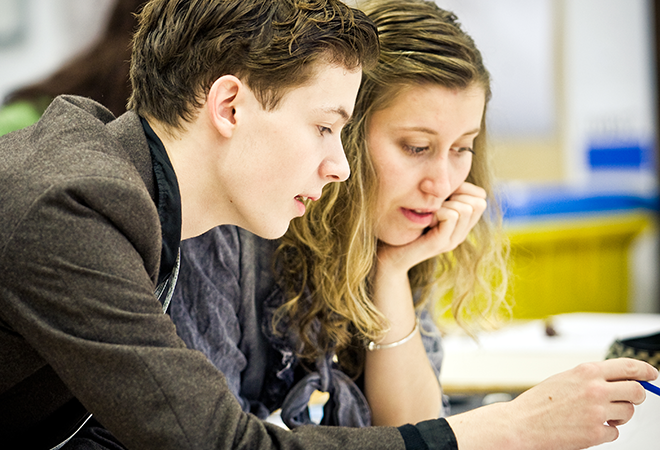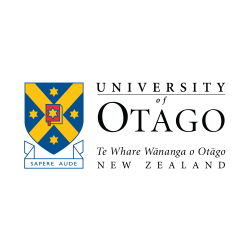
The Good Teaching Project
Status
Completed: 30 June 2017
Project Details
A one-year project, undertaken by the University of Otago, to explore high achieving university students’ conceptions of ‘good teaching’ and ‘effective learning’ in university lecture and tutorial settings.
Aims:
The project aims included:
- foregrounding diverse students’ conceptions of good teaching and effective learning at university without assuming students’ difference or similarity to each other
- exploring the connections between teaching and learning that students’ understandings revealed
- developing a network of staff researchers who spanned the university’s Māori, Pacific, international and academic development portfolios
- identifying common challenges and successes and exploring the synergies that might emerge from working collaboratively
- comparing three approaches to eliciting students’ tacit ideas about teaching and learning
- informing the future development of a larger study involving a wider group of students
Methodology:
The project used a qualitative, interpretivist methodology that involved three elements: An initial focus group discussion, a one-week photography task, and a final focus group discussion where students were invited to discuss the ideas that their photographs convey.
Team

Dr Vivienne Anderson
Project Leader
University of Otago
Ana Rangi
University of Otago
Esmay Eteuati
University of Otago
Dr Rob Wass
University of Otago
Assoc. Prof Clinton Golding
University of Otago
Rafaela Rabello
University of OtagoStatus
Funding
$29,441.00 (excl GST)
Key Findings
Good teaching:
- Good teachers are passionate (or enthusiastic); approachable; and both knowledgeable and able to communicate knowledge effectively.
- Passionate teachers speak in an animated way; relate content to personal stories and experiences; ask questions; proactively invite discussion; provide comprehensive written material; take time to consider new concepts from a range of angles; and use different examples to explain ideas.
- Approachable teachers proactively initiate communication; create opportunities for interaction regardless of class size; foster relationships; invite diverse viewpoints; treat students as equals; use student questions as a teaching tool; affirm students’ contributions; take the stance of both learner and teacher; and are explicit about preferred avenues for student contact.
- Effective communication includes providing constructive and explicit feedback; articulating realistic expectations; and providing clear explanations, access to materials that support students’ study, and guidance on how to learn.
Effective learning:
- Factors that lead to effective learning include actions that help students to: focus and actively participate in class; ‘go deeper’ in their learning; engage with and understand course content; work with others (e.g. discussing ideas and hearing others’ perspectives); recognise (and do) what “works for you”; see learning as a journey; recognise learning as “much more than marks”; and develop everyday practices that sustain and enable learning over time.
Key Recommendations
Recommendations for university teachers
Good teachers demonstrate enthusiasm for their subject area and for working with students | While not everyone is funny, animated, or entertaining in the way they teach, students find it easier to engage with teachers who seem to be personally invested in their subject area and in teaching. They notice when teachers seem happy and interested in their work!
Good teachers demonstrate approachability, or a willingness to engage with students | Small acts make a teacher seem approachable, even in very large classes. Examples include: introducing oneself to students, inviting and affirming teacher-student and student-student interaction during class, explaining how and when you can be contacted, and explicitly acknowledging and inviting diverse viewpoints.
Good teachers show competence and proficiency in their teaching | Students appreciate it when teachers have a ‘clear storyline’, link content to ‘real world’ experiences and examples, explain things clearly, provide a range of learning opportunities, and challenge students to explore ideas and see things in new ways. Good teachers can be seen as ‘translators’, who communicate effectively so that students understand and engage in learning.
Recommendations for university students
Effective learners recognise their role in the teaching-learning partnership and know what works for them | They prepare for and engage in class in ways that allow them to learn (for example, by reading course material and choosing to sit in a place that helps them stay focused). They also experiment with note-taking approaches to find what ‘works’ and feels comfortable, find and create study environments which allow them to both relax and focus, and actively seek out discussion and interaction as a strategic learning approach.
Effective learners focus on learning, rather than marks for their own sake | Effective learners conceptualise university study as a starting point, not an endpoint – as a ‘journey’ of discovery and exploration. Effective learners recognise the importance of time in the learning process. They understand that learning involves ‘sitting on’ information and ideas; and taking time to rest and to do things other than studying.
Effective learners remember where they have come from and where they are going | They keep their short- and long-term goals in mind; and stay connected to people who can encourage them in the learning journey, including family, friends, classmates and teachers.
A report prepared by Vivienne Anderson, Ana Rangi, Esmay Eteuati, Rob Wass, Clinton Golding, and Rafaela Rabello.
(PDF, 2.2 MB, 68-pages).
- 2 July 2017